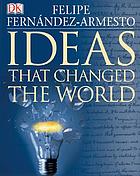16 September
considering Europe
You were asked to think about these issues
-
America is, in short, no longer Europe's shining example, not by any means. Almost unnoticed, we on this continent have taken a road completely our own. 'Europe', writes the American social-economic publicist Jeremy Rifkin, 'had become a huge laboratory for rethinking humanity's future. In many respects, the European Dream is the mirror opposite of the American Dream. While the American Dream emphasises unrestrained economic growth, personal wealth and the pursuit of individual self-interest, the European Dream focuses more on sustainable development, quality of life and the nurturing of Community'.
Do you buy this vision of America and of Europe? -
In the nineteenth century. a large part of the French population spoke no French at all, and the fact that they were Frenchmen and Frenchwomen did not interest them one whit.
Had you ever thought of this fact? Does this mean the very concept of nationalism is a transient construct? -
It has been noted often enough before: the view Europeans have of Europe is a - usually unconscious - projection of the idea they have of their own society. For the Germans, Europe will become one big Germany, for the Poles one great Poland, and the Dutch bravely continue to see Europe as being just as orderly and compromise-oriented as themselves. The problem is that all this leads to an endless flow of conflicts and misunderstandings.
If this is the case, can the "conflicts and misunderstandings" be ameliorated with the bureaucracy of the EU? -
The proud American national self-image is still very much alive. But it does not necessarily imply that the old family ties with Europe will remain a part of that image. Around the year 2055, the majority of American voters will be former immigrants from Africa, Asia and Central and South America or their descendants, people who no longer have any affinity with Europe, with European problems or the Europeans themselves. In the coming decades, the descendants ofimmigrants from Ireland, Germany, Friesland and Holland will enter the minority once and for all. Europe, in other words, must set a course ofits own: politically, economically and militarily.
If the preceding statement is to be believed, what does it mean for our own understanding our ourselves?
Some Resources
- EuroNews
- BBC European News
- Deutsche Welle
- Radio France International
- Radio y Televisión Española
- RAI Radiotelevisione Italiana
Things to think about
Europeana
Europeana.eu is funded by the European Commission and the member states.
Is this a sign that Europe is beginning to achieve a supra-national identity? Or, is nationalism still the stronger impulse?
Finland
BBC News, last updated at 14:33 GMT, Sunday, 24 January 2010
Delivering Finland's web 'human right'
Last year Finland's government announced that access to a broadband internet connection was a human right, and that everyone in the country must have a connection with a minimum speed of one megabit by this summer.
Now the country's going even further - by 2015 every household must be within two kilometres of a fibre optic cable supplying superfast broadband running at 100 megabits per second.
Nick Higham went to Finland to discover how they plan to deliver that promise.


